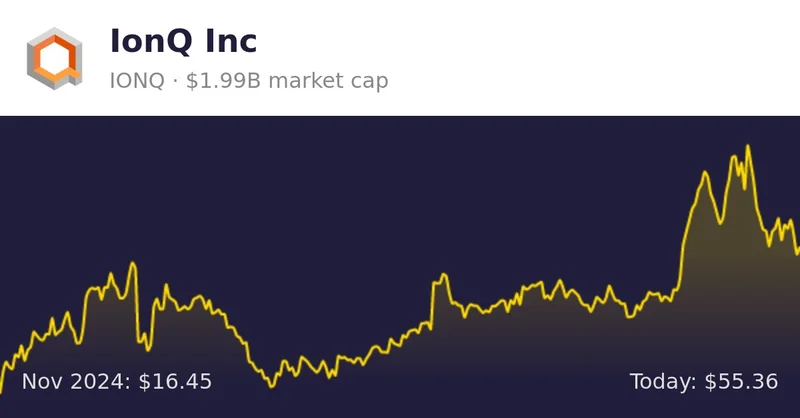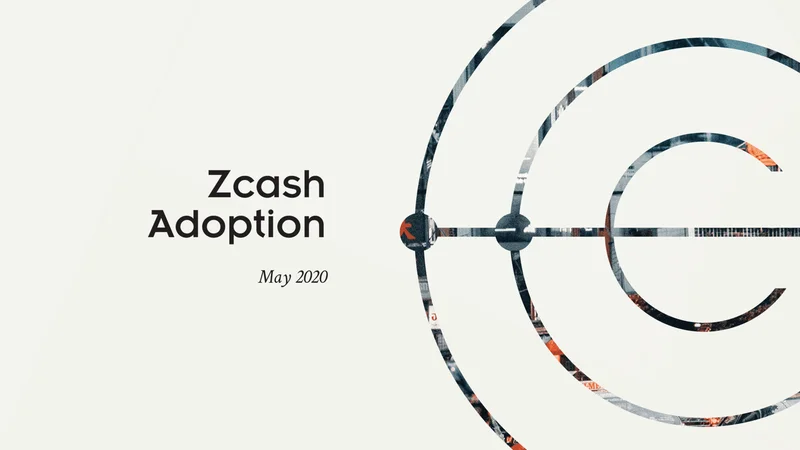IonQ Stock Price Today: What's Driving the Volatility and Should You Be Worried?
Is IonQ Stock a Quantum Leap or a Quantum Mirage?
IonQ, ticker symbol (IONQ), the darling of the quantum computing world, has had a rollercoaster ride. Up 90% from its December 2022 lows, then down nearly 30% in the last month. The question on every investor's mind: is this a buying opportunity, or a sign to bail?
The Quantum Hype vs. Reality
Let's cut through the quantum hype and look at the numbers. IonQ is currently trading at $58.40, giving it a market cap of $15 billion. That's a hefty valuation for a company with just $52 million in revenue. The revenue growth is impressive, 67.8% over the last 12 months, but the operating margin is… well, let's just say it's not pretty. We're talking about -700.6%. Ouch. That's not a typo.
IonQ's valuation is, shall we say, optimistic. It's trading at a P/E multiple of -31.6 and a P/EBIT multiple of -39.9. Normally, I wouldn't touch a company with negative earnings with a ten-foot pole, but quantum computing is, admittedly, not normal. This is all about future potential, not current profitability.
But how much future potential are we talking about? And, more importantly, when will that potential translate into actual profits? The company provides general-purpose quantum computing systems accessible through major cloud platforms, including AWS, Microsoft Azure, and Google Cloud Marketplace. That's a good start. But access doesn't equal usage, and usage doesn't equal revenue.

The real problem, as I see it, is "downturn resilience." The report mentions that IonQ stock declined by 90% from a high of $31.00 on 17 November 2021 to $3.10 on 27 December 2022, compared to a peak-to-trough decline of 25.4% for the S&P 500. Yes, it recovered. But that kind of volatility should make any investor nervous, especially if, like me, you remember 2008 (the market dipped, I aged). What happens when the next black swan event hits? Will IonQ be able to weather the storm, or will it sink back to those crisis-era lows?
The Portfolio Diversification Hedge
The report rightly points out that investing in a single stock is risky. Diversification is key. The Trefis High Quality Portfolio, which claims to have "effectively transformed stock-picking unpredictability into consistent market-beating results," is presented as an alternative. I'm always skeptical of claims like that. What's their methodology? What constitutes a "high quality" stock? The report doesn't say. This is the part of the report that I find genuinely puzzling. I've looked at hundreds of these filings, and this particular omission is unusual.
Here's my methodological critique: the report compares IonQ's performance to the S&P 500. That's a fair comparison, but it doesn't tell the whole story. IonQ is a tech stock, so it would be more relevant to compare it to the Nasdaq or a similar tech-heavy index. How does IonQ's volatility compare to other speculative tech stocks like Palantir (PLTR) or even Tesla (TSLA)? The data is missing, and that makes it hard to draw any firm conclusions.
What about other quantum computing stocks? How does IonQ compare to Rigetti (RGTI) or other players in the space, like QuBT? Are they all facing the same challenges, or is IonQ uniquely positioned (for better or worse)? Again, the report is silent. Details on why the comparison group was chosen remain scarce, but the impact is clear. For more on the outlook of IonQ and QuBT, see Pardon Our Interruption.
Quantum Hype Needs a Reality Check
IonQ is a fascinating company with a lot of potential, but the current valuation is detached from reality. The market seems to be pricing in a future where quantum computing is ubiquitous and profitable, but that future is still years away. Maybe decades. It's like betting on a racehorse before it's even been born. Sure, it could be a champion, but there are a million things that could go wrong. Until IonQ can demonstrate a clear path to profitability and prove its resilience in a market downturn, I'm staying on the sidelines. The risk-reward ratio just isn't there.
-

The Juan Gabriel 'Alive' Hoax: Deconstructing the Latest 'Proof'
So,JuanGabrielisaliveagain.I...
-

Jeff Bezos: His Net Worth, His Love Life, and Why We're All Obsessed
So,JeffBezoshasdescendedfrom...
-

Zcash's Sudden Price Surge: Analyzing the Catalysts and Its Future Outlook
Zcash'sViolentRally:Deconstruct...
-

Warren Buffett's OXY Stock Play: The Latest Drama, Buffett's Angle, and Why You Shouldn't Believe the Hype
Solet'sgetthisstraight.Occide...
-

Registered Investment Advisor (RIA): Defining the Role, Services, and Fee Structures
TheQuietRuleChangeThatWillRe...
- Search
- Recently Published
-
- Cidara Therapeutics: Stock, News, & The Usual Spin?
- ANyONe Protocol: What the hell is it, and is it even real?
- BMO: The Bank, The Stadium, The Cartoon, and Why You Should Care
- BBAI Stock: The Investment Case vs. The Current Data
- CoreWeave's Stock Nosedive: What They're Not Telling You
- IRS Relief Payment: Status, Timing, and What the Data Shows
- Zcash's "Historic Surge": Hayes is Hyping It?
- BMO: What is it and Where Can I Find One?
- Avelo Airlines: FAA Cuts and the Lakeland Linder Opportunity
- SpaceX Launch Today: What Happened and Launch Time Details
- Tag list
-
- carbon trading (2)
- Blockchain (11)
- Decentralization (5)
- Smart Contracts (4)
- Cryptocurrency (26)
- DeFi (5)
- Bitcoin (29)
- Trump (5)
- Ethereum (8)
- Pudgy Penguins (5)
- NFT (5)
- Solana (5)
- cryptocurrency (6)
- XRP (3)
- Airdrop (3)
- MicroStrategy (3)
- Stablecoin (3)
- Digital Assets (3)
- PENGU (3)
- Plasma (5)
- Zcash (6)
- Aster (4)
- investment advisor (4)
- crypto exchange binance (3)
- SX Network (3)
